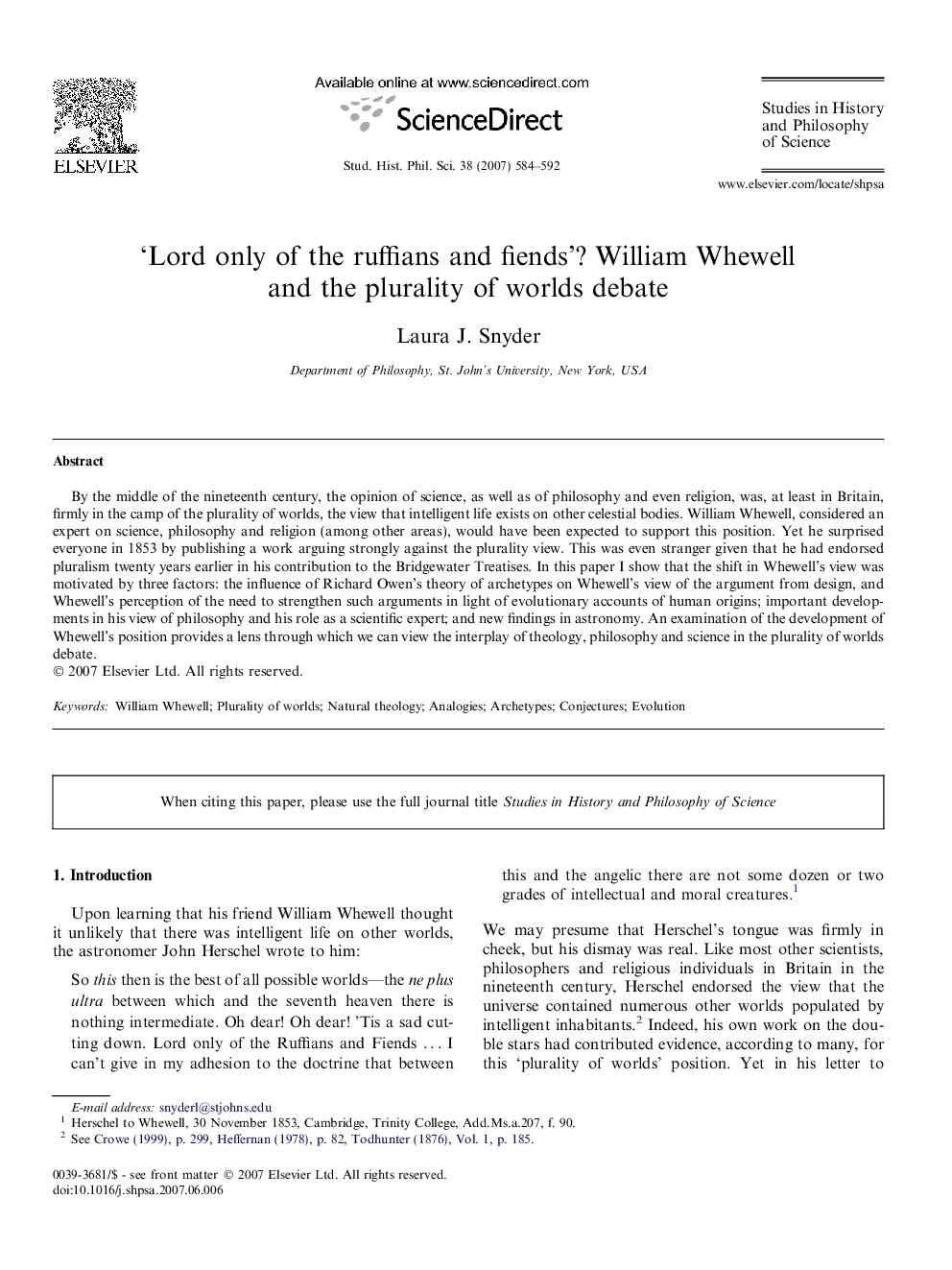| Article ID | Journal | Published Year | Pages | File Type |
|---|---|---|---|---|
| 1160986 | Studies in History and Philosophy of Science Part A | 2007 | 9 Pages |
Abstract
By the middle of the nineteenth century, the opinion of science, as well as of philosophy and even religion, was, at least in Britain, firmly in the camp of the plurality of worlds, the view that intelligent life exists on other celestial bodies. William Whewell, considered an expert on science, philosophy and religion (among other areas), would have been expected to support this position. Yet he surprised everyone in 1853 by publishing a work arguing strongly against the plurality view. This was even stranger given that he had endorsed pluralism twenty years earlier in his contribution to the Bridgewater Treatises. In this paper I show that the shift in Whewell's view was motivated by three factors: the influence of Richard Owen's theory of archetypes on Whewell's view of the argument from design, and Whewell's perception of the need to strengthen such arguments in light of evolutionary accounts of human origins; important developments in his view of philosophy and his role as a scientific expert; and new findings in astronomy. An examination of the development of Whewell's position provides a lens through which we can view the interplay of theology, philosophy and science in the plurality of worlds debate.
Related Topics
Social Sciences and Humanities
Arts and Humanities
History
Authors
Laura J. Snyder,
